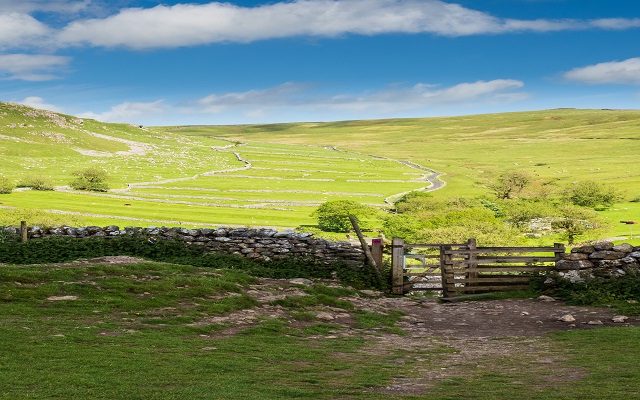Land Business Update | Week Commencing 4th September 2023
Farming
Sustainable Farming Incentive scheme (SFI 2023) open for applications from 18th September (England)
The scheme includes 23 sets of actions that land managers can take, including on soil health, moorlands, hedgerows, integrated pest management, farmland wildlife, buffer strips and low input grassland. Please contact our farming team if you would like to discuss what options would suit your land and integrate with your farming system.
Scottish Basic Payment rates announced
The rates for 2023 have increased since last year and are as follows (BPS & greening rates combined): Region 1 £223.56/ha; Region 2 £45.36/ha; Region 3 £13.76/ha. A full break down between BPS and greening and comparison to 2022 rates can be found here.
Habitat Wales scheme – details published of the new interim agri-environment scheme
The scheme will act as a temporary or stop-gap replacement before the introduction of the Sustainable Farming Scheme in 2025. It will be open to all eligible land managers, including land not currently under a Glastir scheme. Payment rates have not been published but will be in the full guidance document. Main points are:
- All habitats on the land must be entered into the agreement i.e., applicants can’t select which habitat areas to include.
- Each habitat must be managed to a set of broad ‘habitat requirements’, which include no fertilising, no land improvements, only spot spraying, no liming, supplementary feeding in existing feeding areas only.
- The six week application window will open later this year, with 12 month contracts offered, starting on 1st January 2024.
- Applications will be made on line, with no visits from Natural Resources Wales staff.
- There will be a competitive scoring and selection process i.e., applicants will not automatically get an agreement.
- The scheme does not include capital works (but they can be funded under the Small Grants – Environmental scheme).
Defra confirms increased funding for slurry-related grants (England)
As part of the recent announcement on nutrient neutrality rule changes (see below), Defra announced new commitments on slurry management:
- £147m funding for the coming two rounds of Slurry Infrastructure Grant in autumn 2023 and 2024 (NB the first round used £34m).
- £21m for two further rounds of funding of slurry management equipment, offered as part of the Farming Equipment and Technology Fund. The next round is to open in early 2024.
Defra also announced that at least 4,000 farm inspections will be conducted each year to ensure water pollution from runoff is minimised. From 2024 payment premiums will be introduced into environmental land management schemes to accelerate the take up of certain high priority options, including those to improve water quality.
Environment
Nature for Peatland Grant Scheme awards £16m to 12 projects
The funding is hoped to provide a major step to reaching the national target of restoring 35,000 hectares of peatland in England by the end of the parliament, so by early 2025. The projects include the Great North Bog, which covers some 90% of the upland peatlands in the North of England; the Dorset Heaths; the Lincolnshire Fens and upland peatland in the Forest of Bowland in Cumbria. Peatlands cover 10% of the UK’s total land area. In England, 87% of peatlands are rated as degraded.
Stacking Biodiversity Net Gain (BNG), nutrient neutrality and agri-environmental schemes on the same land (England)
Natural England has updated its guidance which clarifies that farmers can receive funding from an agri-environment scheme on the same land used for BNG or nutrient neutrality credits. This applies as long as the scheme creates, enhances or maintains a different habitat than the one used for BNG or nutrient neutrality credit generation. The full guidance is available here. Please contact Jonty Rawcliffe, Head of Natural Capital for England, if you would like to discuss.
More details on European Carbon Border Adjustment Mechanism
The EU has published more of the regulations that will implement its Carbon Border Adjustment Mechanism (CBAM), which is a financial tool that measures and can charge for carbon emissions from goods imported into the EU. The aim of the CBAM is to reduce carbon leakage, which means carbon that is emitted outside the EU to avoid EU legislation or standards, or when EU products are replaced by more carbon-intensive imports, which undermines the EU’s climate action. The CBAM will initially focus on a limited range of goods which are considered to be at most risk of carbon leakage, including cement, fertiliser, iron and steel, electricity and aluminium. It will be phased in over two years in order to give businesses time to get used to the reporting requirements.
Separately, the European Commission has approved funding for a German scheme to partially compensate energy-intensive companies for higher fuel prices resulting from its fuel emission trading system. What is interesting is that at least half of the compensation paid to companies, which is between 65% & 95% of costs incurred, must be used to invest in measures that increase energy efficiency or decarbonise their production processes.
Property and rural economy
Government weakens nutrient neutrality rules for house building in England
The government has said that it intends to make nutrient neutrality rules discretionary, rather than mandatory, so effectively removing the requirement for house builders to ensure developments do not lead to a net increase in nutrient pollution in waterways. The government says that the change will unblock the building of around 100,000 houses and that the pollution from the new houses is ‘very small’. It has introduced a suite of other measures that it says will reduce nutrient pollution more than the removed policy:
- Doubling funding for Natural England’s nutrient mitigation scheme to £280m, as agriculture remains one of the primary sources of water pollution in the UK.
- Additional funding for the Slurry Infrastructure Grant (see above).
- A commitment to conduct 4,000 inspections on farms each year to reduce slurry and other sources of nutrient pollution.
- New rules for water companies to upgrade wastewater treatment works ‘to the highest technical standards’ by 2030. This, the government says, will reduce pollution from existing, as well as new, homes.
- New requirements for sustainable urban drainage schemes (SUDS) to reduce pressure on storm overflows from new homes.
- A proposal to develop bespoke local Protected Sites Strategies in catchments that are most impacted by nutrient neutrality rules.
- An action plan for the River Wye, to be produced this Autumn.
The change has, predictably, had a very mixed response. Environmental organisations have criticised it. The Office for Environmental Protection, which is the independent watchdog, said the change was a “regression” in environmental protections. Farmers Weekly said that “champagne corks will be popping” at the house builders. Other organisations, including the CAAV, have said that the change represents a move to using a wider range of tools to tackle pollution. What has not been published is the government’s analysis of how much pollution each of the new approaches / tools will remove.
Scottish Government proposes to ban the use of all snares
The Scottish Government says that use of snares causes unnecessary suffering for animals. The proposed ban is supported by a number of animal welfare charities and, according to the Scottish government, most European countries do not permit the use of the snare traps. Wales banned them earlier this year. Scottish Land and Estates has said that the ban will remove a tool to manage predation pressure on vulnerable species, including ground nesting birds such as curlew and lapwing. The consultation closes on 3rd October.
Opinions remains split on the Renters Reform Bill, survey finds out
A recent survey of over 2,000 letting agents, landlords and tenants from the Goodlord and Vouch platforms found that opinions over the proposed changes in the Bill have evolved since last year:
- Landlords remain pessimistic (54%) about the new rules but the proportion that think the rules will have a negative impact has fallen from to 62% in 2023, from 71% in 2022.
- Only 22% of landlords believe that the introduction of the new ombudsman will have a positive impact on the sector, compared with 42% of letting agents.
Please read our blog post Renters’ Reform Bill – a guide for rural landlords for more details on the new rules. Please contact Sarah Roberts if you have any further questions.






